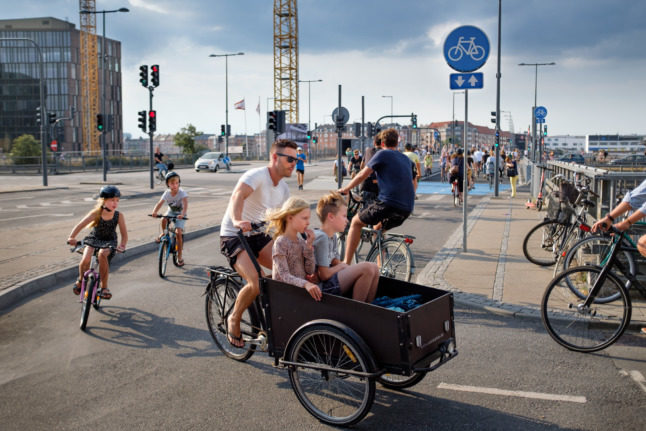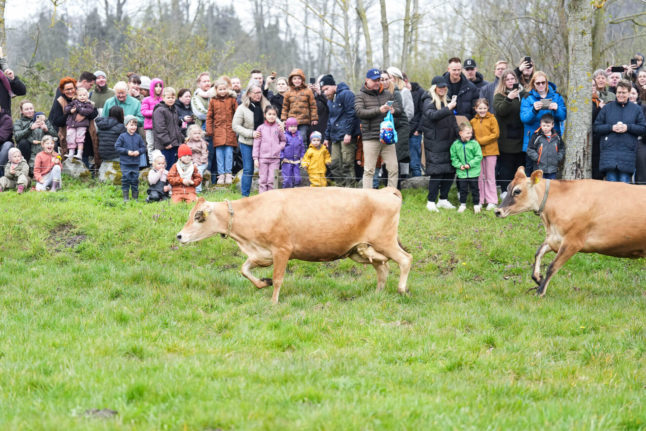Coronapas
As of August 1st, coronapas is no longer required at museums, amusement parks, aquariums, zoos, etc; theatres, venues, cinemas, etc. with fewer than 500 spectators; and conferences with fewer than 500 attendees.
Coronapas-less indoor dining will be back on September 1st, and nightclubs and discos will be able to welcome guests with coronapas.

Start of the school year
Denmark’s school children will return to the classroom – or, as it were, the bus – on August 9th.
Starting August 1st, school testing requirements for children are abolished, according to the Ministry of Children and Education. However, parents are strongly encouraged to test primary school students twice a week through the end of September.
Higher education relaxes precautions
Beginning August 1st, Students will no longer need to present a negative test result to attend higher education (previously, a PCR test less than 96 hours old or a rapid/antigen test less than 72 hours old was required). According to the Danish Ministry of Higher Education and Science, 100 percent of staff will be able to attend in person, and higher education institutions don’t have to maintain their own test facilities anymore, either.
Folk high schools
Students, participants, and staff that haven’t been vaccinated and are not recovered from Covid-19 must be able to present a negative Covid-19 test result (less than 96 hours old for PCR, 72 hours old for rapid/antigen tests).
Culture and Recreation
Beginning August 1st, according to the Ministry of Culture:
- The maximum assembly size is increased. Up to 500 people can gather the same place at the same time, either indoors or outdoors.
- Indoor and outdoor events can host far more than 500 individuals, given that certain spacing and infection prevention requirements are met. Those requirements differ depending on whether the audience will be seated or standing.
- Professional football matches are exempt from the assembly ban. Coronapas are required for events with more than 2,000 spectators, and attendees are required to sit in fixed seats. Each attendee’s contact information is to be collected for infection detection.
- People 16 years of age and older require coronapas in this list of circumstances, provided by the Ministry:
- indoor cultural and sporting events with seated audiences with 500 or more spectators, including rooms in stadiums where professional football matches are held
- outdoor cultural and sporting events with seated audiences with more than 2,000 spectators.
- indoor and outdoor cultural and sporting events with standing audiences with 500 or more spectators.
- At gyms and indoor sports centers, coronapases will be checked at random daily beginning August 1st.
Groceries and shopping
As of August 1st, more people will be able to shop at the same time. The area requirement is relaxed to 2m2 per person.
Work life
Beginning August 1st, according to coronasmitte.dk, the recommendation for physical attendance at the workplace is raised to 100 percent.
Transportation
As of August 2nd, cyclists, pedestrians, and people with disability parking permits can ride free on Molslinjen ferries on weekdays.
READ MORE: Cyclists and pedestrians given free weekday use of Danish ferries

Copenhagen Fashion Week
From August 10-13th, Denmark’s (and many of the worlds’) greatest fashion minds will converge on the city. Street style will be at its peak, so look your best for the Vogue photographers roaming the streets. It’s trade shows and catwalks galore across the city.
CHART Art Fair
August 26-29th is the high-concept CHART Art Fair, where architects, painters, sculptors and other designers create elaborate installations at Charlottenborg in Copenhagen. Twenty-six leading contemporary Nordic galleries will showcase their work, and it’s a real spectacle.



 Please whitelist us to continue reading.
Please whitelist us to continue reading.
Member comments